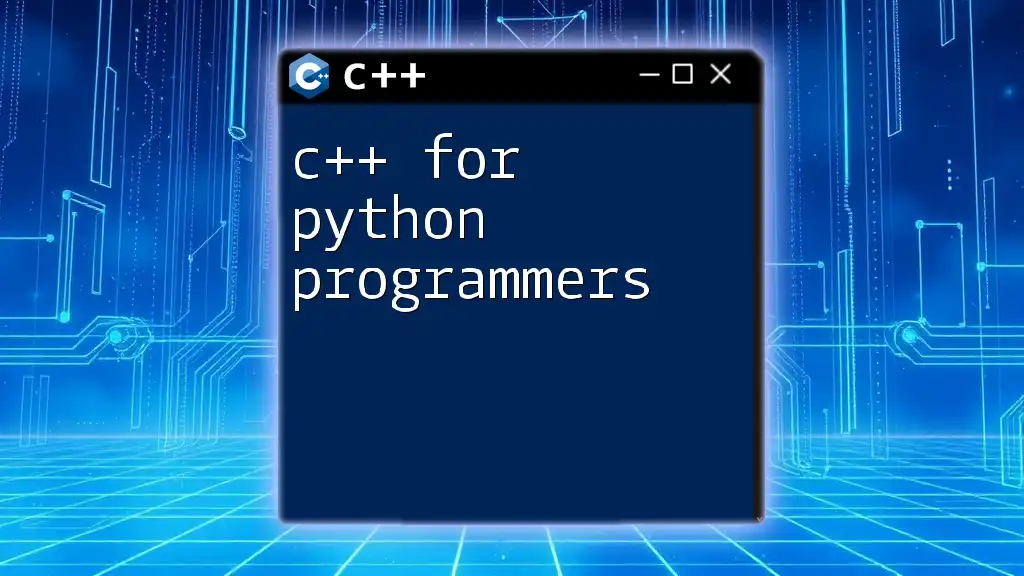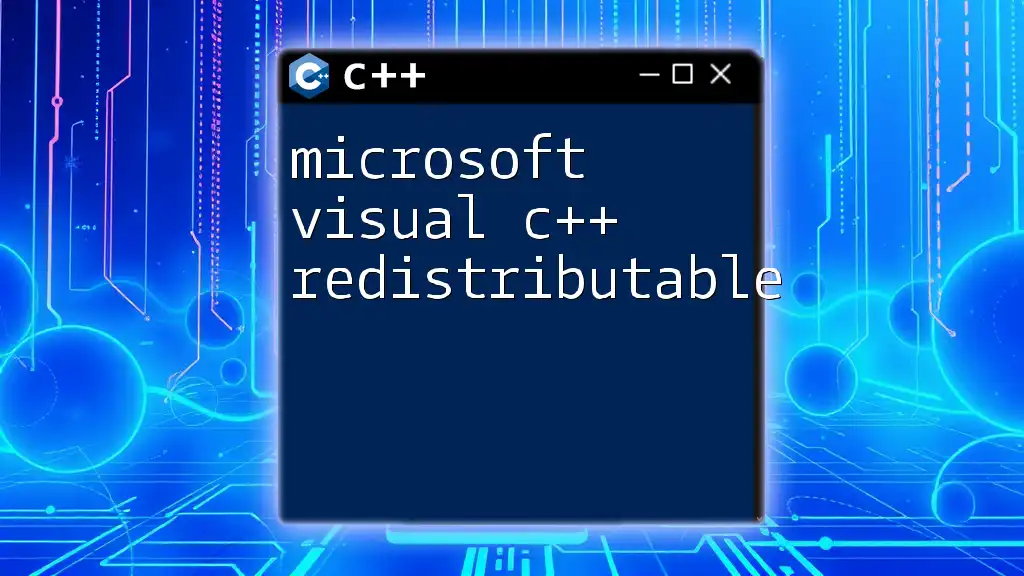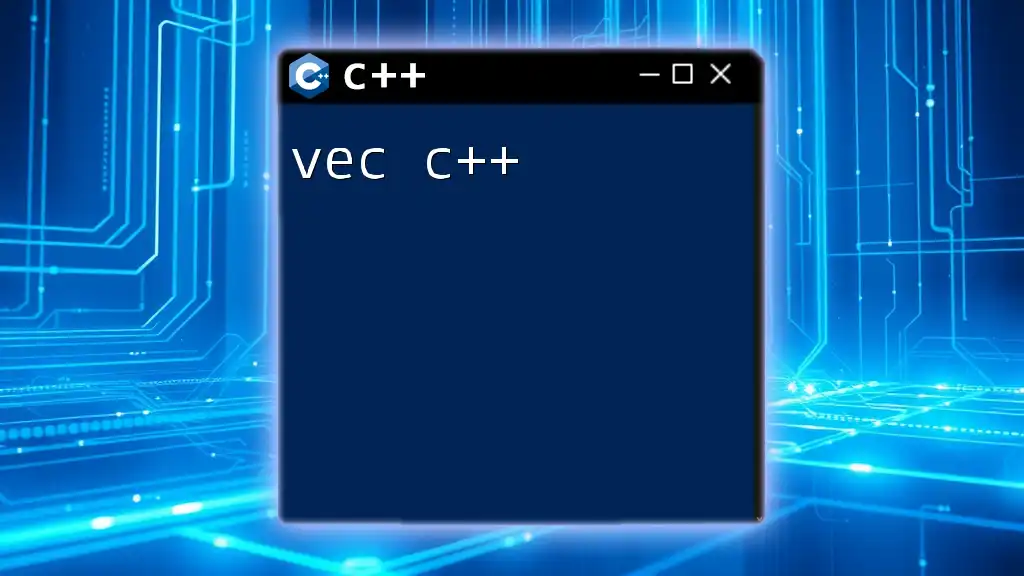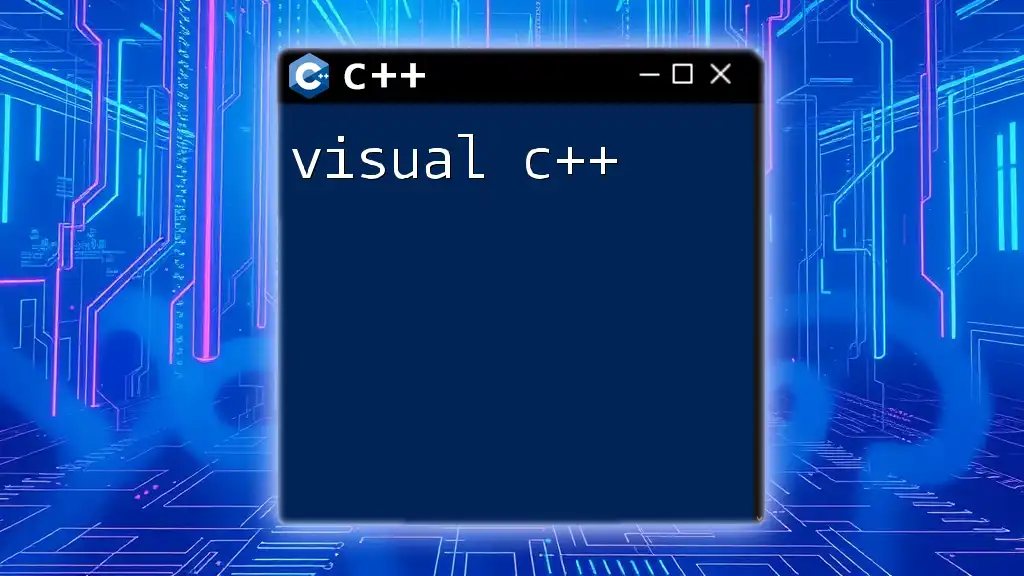Deciding between C++ and Python depends on your objectives—C++ offers greater performance and control for system-level programming, while Python is ideal for rapid development and ease of use.
Here’s a simple C++ program snippet:
#include <iostream>
int main() {
std::cout << "Hello, World!" << std::endl;
return 0;
}
Understanding the Basics
What is C++?
C++ is a powerful programming language that was developed as an extension of the C programming language. It is known for its performance and flexibility, making it a popular choice for a variety of applications. The key features of C++ include its support for object-oriented programming, which allows for better organization of complex programs, as well as its ability to perform low-level memory manipulation. This makes C++ an ideal choice for applications such as game development, system programming, and software that requires high performance.
What is Python?
Python, on the other hand, is often praised for its simplicity and readability. Created by Guido van Rossum, Python has grown to become one of the most popular programming languages in the world, particularly in fields like web development, data analysis, and artificial intelligence. Its high-level nature allows programmers to focus on solving problems rather than managing complex syntax and memory, making it extremely approachable for beginners. Python’s extensive standard library and vibrant community contribute to its versatility and rapid adoption across various domains.

Comparing C++ and Python
Syntax and Readability
One of the most noticeable differences between C++ and Python is their syntax. C++ is relatively complex and can be verbose, while Python emphasizes simplicity and readability.
For example, a simple "Hello, World!" program appears much more streamlined in Python:
// C++ example
#include <iostream>
int main() {
std::cout << "Hello, C++!" << std::endl;
return 0;
}
# Python example
print("Hello, Python!")
This difference in syntax is significant for new learners. Readability is a critical aspect in programming because it affects how easily code can be maintained and understood over time.
Performance and Efficiency
When it comes to performance and efficiency, C++ generally takes the lead. It is compiled to machine code, allowing for execution speeds that are often faster than interpreted languages like Python. Moreover, C++ provides fine-grained control over system resources, which is crucial in performance-sensitive applications.
For instance, consider a simple function to compute the sum of numbers:
// C++ performance example
int sumCPP(int n) {
int sum = 0;
for (int i = 1; i <= n; ++i) {
sum += i;
}
return sum;
}
In Python, the equivalent would look like this:
# Python performance example
def sumPython(n):
return sum(range(1, n + 1))
While the Python code is more succinct, you might notice a performance difference in scenarios involving large datasets or complex calculations. Choosing between C++ and Python can hinge on the requirement for speed vs. ease of coding.
Application Areas
Game Development
C++ has long been the go-to language in game development, powering industry-leading game engines like Unreal Engine. The language's performance capabilities are essential for rendering graphics and managing the real-time demands of gaming.
Conversely, Python can also play a role in game development, particularly for scripting and rapid prototyping. Frameworks like Pygame allow developers to create simple games quickly, but for high-performance titles, C++ remains the standard.
Web Development
In terms of web development, Python shines brighter with frameworks like Django and Flask. These tools help developers build robust and scalable web applications with significantly less boilerplate code than would be necessary in C++. On the other hand, while C++ can also be used for web applications, it is less common and generally involves more complexity and less community support.
Data Science and Machine Learning
Python is extremely well-suited for data science and machine learning. Its libraries, such as Pandas, NumPy, and TensorFlow, provide powerful tools for data manipulation and model building. In contrast, while C++ can be employed in these areas, it usually requires more coding overhead and can limit rapid experimentation due to its complexity.

Learning Curve
Beginner Friendliness
When considering should I learn C++ or Python, it’s important to assess the learning curve associated with each language. Python is widely regarded as one of the most beginner-friendly programming languages due to its simplicity. The clear syntax and active community support means that beginners can get up to speed more quickly.
C++, on the other hand, presents a steeper learning curve. With its intricate syntax, memory management, and the concept of pointers and references, it can be overwhelming for newcomers. If the goal is to learn programming concepts quickly before diving into more complex topics, Python is generally the recommended choice.
Teaching Approach
Teaching methods differ significantly for C++ and Python. Interactive learning environments and resources, such as online coding platforms, provide immediate feedback and context, which are valuable when learning. For Python, many platforms offer interactive notebooks that allow for easy experimentation. In contrast, resources for C++ may focus more on theory and structure due to its complexity.

Career Opportunities
Job Market Overview
As for career opportunities, the job market for Python developers is currently more robust and varied. Many industries are demanding skilled Python programmers, particularly in tech, finance, and data science. This demand often translates into competitive salaries.
C++ developers also enjoy a good job market, especially in sectors that require high-performance applications. However, the number of positions may not match the rapidly growing demand for Python skills.
Popular Industries
C++ dominates in areas like embedded systems, financial applications, and high-performance software. Python, on the other hand, has carved a niche in tech startups, academia, scientific computing, and artificial intelligence, making it a valuable language for those looking to enter emerging fields.

Conclusion
Final Thoughts: Should I Learn Python or C++?
Ultimately, the decision of whether to learn C++ or Python depends on personal interests and career goals. If you are drawn to high-performance applications, game development, or systems programming, investing time in learning C++ may be beneficial. However, if you are interested in web development, data science, or rapid prototyping, Python will likely provide a more rewarding experience.
Additional Resources
To help guide your learning journey, consider exploring online courses, coding bootcamps, or books specific to the language you choose. Engaging with community forums and documentation can also enhance your understanding and provide support as you progress.
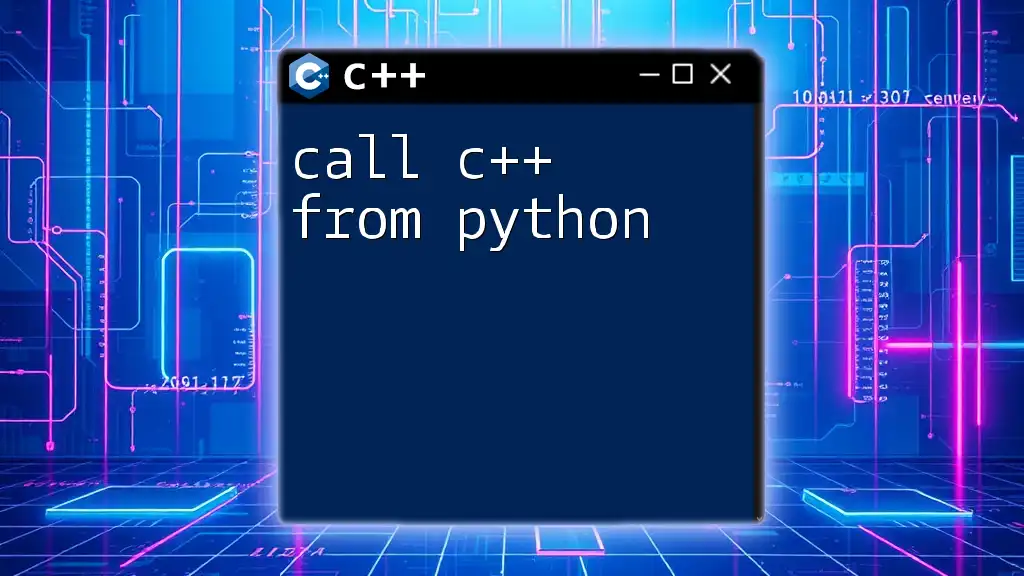
Call to Action
Take the time to assess your interests, think about your long-term goals, and determine which language resonates with you more. Be sure to leverage the resources we provide for C++ and Python tutorials to kickstart your programming journey!










